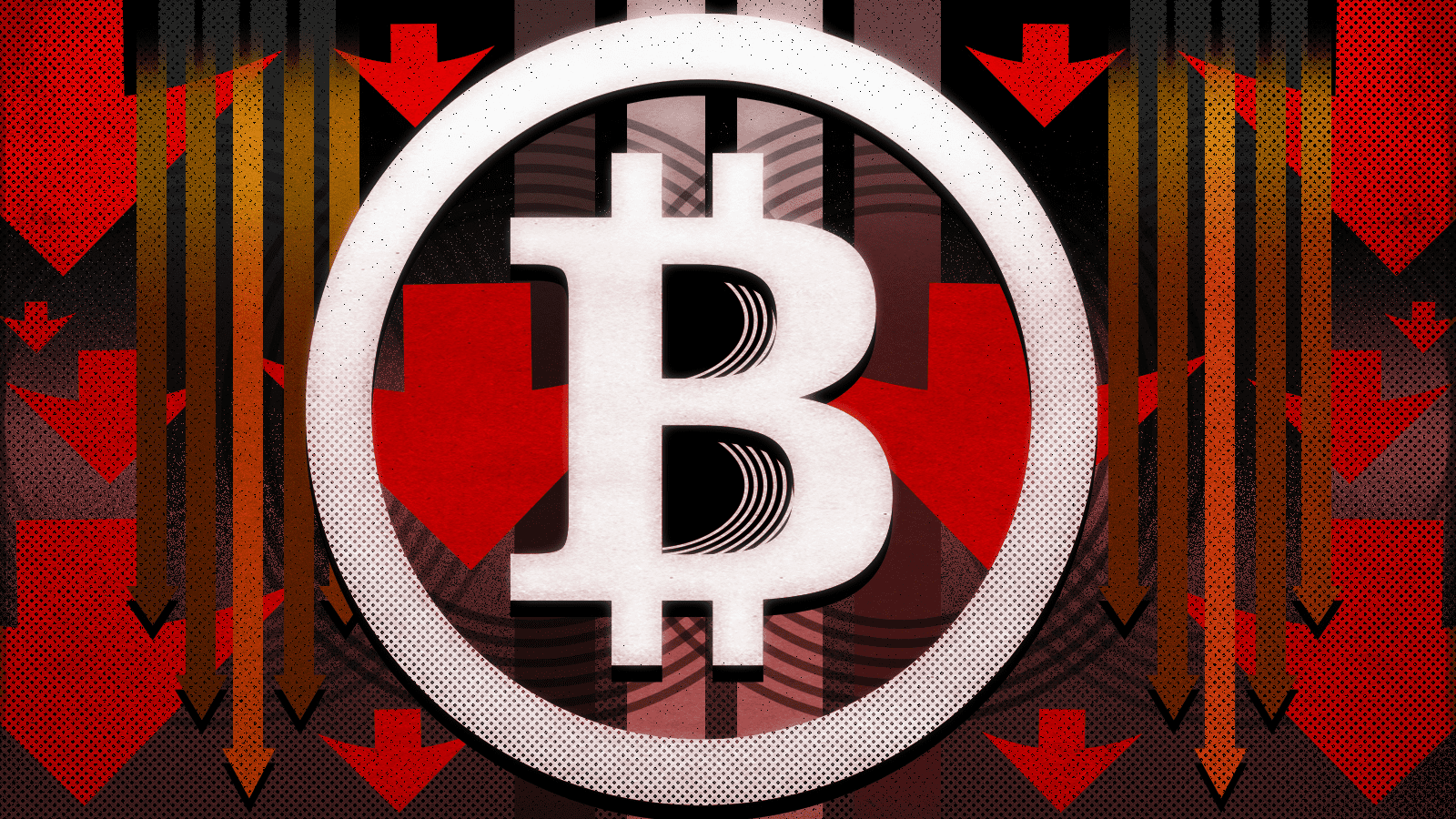Bitcoin Trading Like Big Tech as Markets Reel
The S&P 500 and Nasdaq were trading 2.3% and 2.8% lower, respectively, at time of publication, while bitcoin and ether similarly lost 4% and 7%, respectively

blockworks exclusive art by axel rangel
- Equities and cryptos plunged lower Friday in the aftermath of Jackson Hole
- Bitcoin especially is trading like a big tech stock, analysts say, and until there is a change in macro conditions, this will continue
Markets extended declines Friday after Federal Reserve Chairman Jerome Powell took a more hawkish stance during his Jackson Hole remarks. Cryptocurrencies slipped further into the red as traders became increasingly discouraged by the Fed’s likely move in September.
The S&P 500 and Nasdaq were trading 2.3% and 2.8% lower, respectively, at time of publication. Bitcoin and ether similarly lost 4% and 7%, respectively.
“Today’s reaction to Fed Chairman Powell’s speech at Jackson Hole is somewhat surprising, as he did not really say anything new, at least to Fed watchers, and markets had appeared to have largely priced in a 75 basis point rate hike,” Bill Cannon, head of portfolio management at digital asset fund manager Valkyrie Investments, told Blockworks.
“Powell has been transparent through his comments recently that rate hikes were needed to cool inflation, and today’s statement reinforced this strategy,” Cannon said.
Cryptos have struggled to turn around this year. Bitcoin and ether are both down more than 50% year-to-date, and without a significant shift in macroeconomic conditions, analysts are not expecting a rally.
“With inflation, unfortunately bitcoin acts like a tech stock,” Patrick Feeney, former hedge fund trader and founder of Feeney Factor, said.
“[Bitcoin is] supposed to be digital gold, but it’s just not panning out that way lately,” Feeney said.
Bitcoin correlation and market expectations
Bitcoin’s correlation coefficient with the S&P 500 hit 0.64 in early May before falling to around 0.4 earlier this month, according to data from Coin Metrics. A coefficient of 1 means the assets are moving perfectly in sync.
The trend is back on the rise though, data shows, with the correlation coefficient hovering near 0.5 earlier this week.
“For the past year, crypto and equity markets have traded tightly together,” Clara Medalie, strategic initiatives and research director at data provider Kaiko, told Blockworks earlier this month. “What we’ve seen over the past year is that correlations tend to strengthen around key releases of economic data, such as Fed meeting notes or inflation numbers.”
Recent data, such as plunging unemployment numbers and the latest Consumer Price Index (CPI) report, may suggest that inflation is cooling. The Fed’s preferred measurement of inflation, the Personal Consumption Expenditures price index, which was released Friday ahead of Powell’s remarks, also shows easing prices in July. The year-over-year change for July came in at 6.3%, down from 6.8% in June.
Still, Powell warned Friday there is still a long way to go before sustained price stability is reached.
“Estimates of longer-run neutral are not a place to pause or stop,” Powell said during his speech on the second day of the Economic Policy Symposium, hosted by the Kansas City Federal Reserve. “Our decision at that September meeting will depend on the totality of the incoming data and the evolving outlook,” he said.
Futures markets now are calling for a 60.5% chance of a 75 basis point rate hike in September, which would mark the central bank’s third consecutive increase of that size, according to data from CME Group.
Get the news in your inbox. Explore Blockworks newsletters:
- The Breakdown: Decoding crypto and the markets. Daily.
- 0xResearch: Alpha in your inbox. Think like an analyst.






